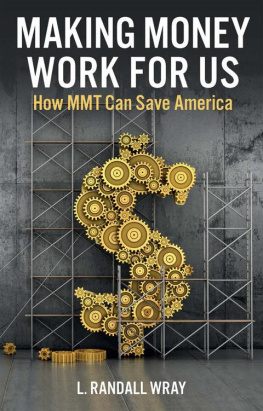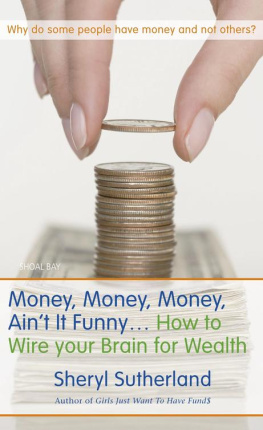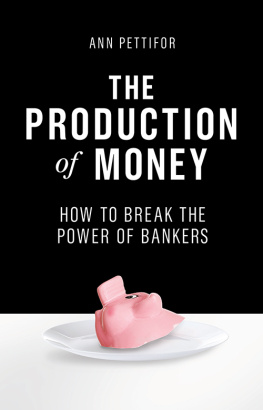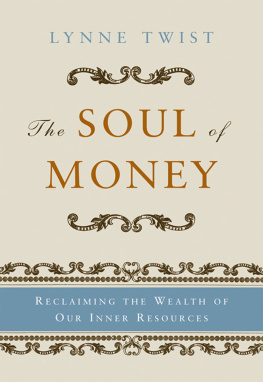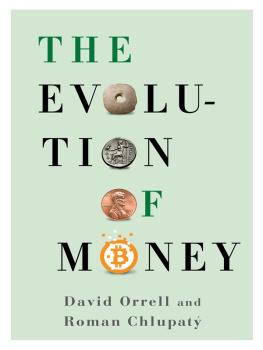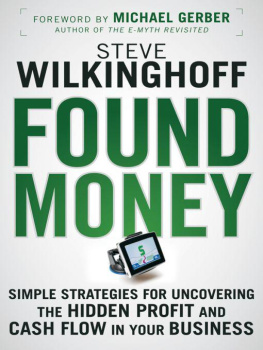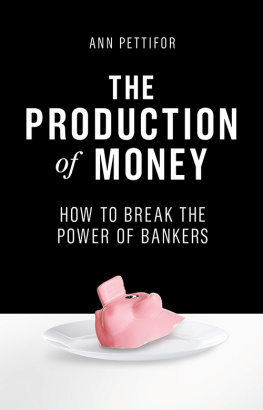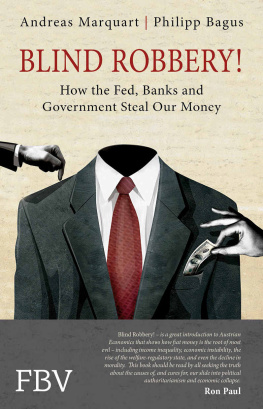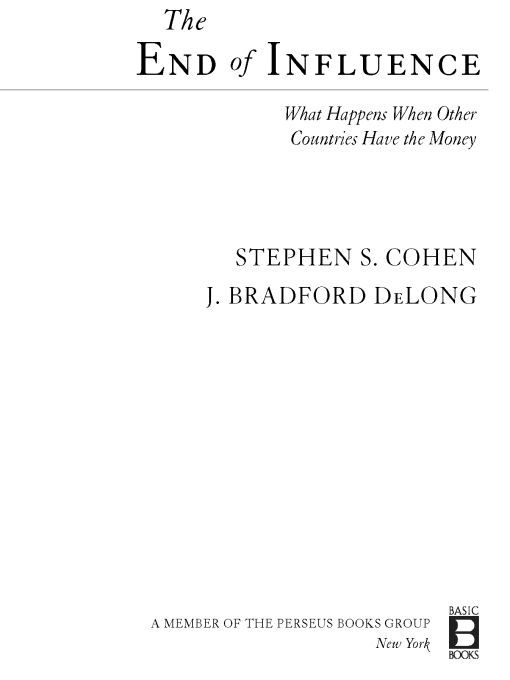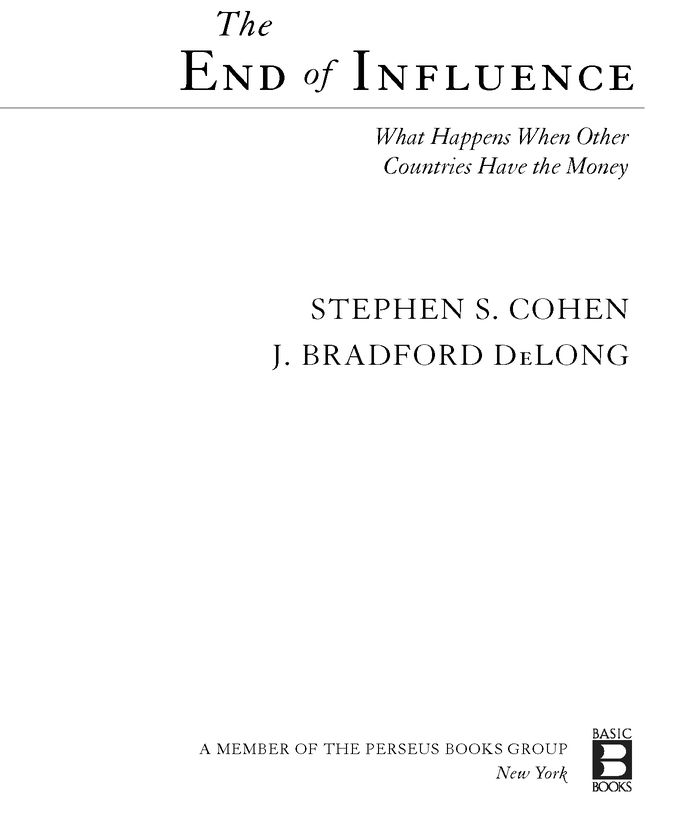Table of Contents
FOR
Eleanor
AND FOR
Michael and Gianna
ACKNOWLEDGMENTS
Research for this book received generous support from the Alfred P. Sloan Foundation and from the European Union Center of Excellence, UC Berkeley, and benefited from the excellent research assistance of Estafania Santacreu-Vasut.
ONE
INTRODUCTION: WHEN OTHER COUNTRIES HAVE THE MONEY
During World War I, the worlds long-reigning superpower, Great Britain, faced a disturbing development: Just when the nation really needed it, Britain no longer had the money. The money had shifted to the United States, where it accumulated for the next sixty years, and then began to drain away. Soon it will be gone.
The money is not likely to come back anytime soon. The United States is now the worlds biggest debtor, and there is no other debtor nation of consequence. The legendary Spanish bullfighter Garcia was once asked: Who is the worlds greatest matador? His prompt reply: Me, Garcia the Great. And there is no number two, and no number three.
Does it matter? Yes. Back when the United States had the money, it mattered for Americans and it mattered more for others. The American government could and did use its public money and could and did channel the private money of Americans in what it regarded as its own, the nations, and the worlds interest. Having the money was a powerful tool and force. America, of course, used its economic dominance exclusively for global good. The United States gave market forces free playexcept when it needed to apply financial pressure to encourage other countries to do rightto do what was good for the world and themselves, and to eschew doing wrong. With the Marshall Plan, the United States strongly encouraged European politicians to adopt the mixed-economy, social-democratic order of the post-World War II North Atlantic. With hints that it would not support the pound or the franc, America forced Britain and France to abandon their ill-conceived colonial adventure in Suez. In these ways and others, America, of course, used the leverage of having the money exclusively for global goodbut it was the American government that decided what was globally good.
When you have the moneyand you are a big, economically and culturally vital nationyou get more than just a higher standard of living for your citizens. You get power and influence, and a much-enhanced ability to act out. When the money drains out, you can maintain the edge in living standards of your citizens for a considerable time (as long as others are willing to hold your growing debt and pile interest payments on top). But you lose power, especially the power to ignore others, quite quicklythough hopefully, in quiet, nonconfrontational ways. And you lose influencethe ability to have your wishes, ideas, and folkways willingly accepted, eagerly copied, and absorbed into daily life by others. As with good parenting, you hope that by the time this happens, those ideas and ways have been so thoroughly integrated that they have become part of what is normal and regular abroad as well as at home; sometimes, of course, they dont. In either case, the end is inevitable: you must become, recognize that you have become, and act like a normal country. For America, this will be a shock: America has not been a normal country for a long, long time.
HOW WILL IT MATTER?
If international financial transactions were exclusively market exchanges between private players focused just on the highest profits, it wouldnt matter much who had the money or where those with the money happened to live. But often it does matter. In times of emergencies, the private property of a countrys citizens and of its national-flag companies is always controlled by its political master, government. And private market transactions are not the whole game; they never were. Sometimes, significant portions of the money are directly controlled by nonmarket, political actors. Today is one of those times. Lots of the money is now in the hands of the governments of oil-producing statesranging from Norway to Russia and the countries of the Persian Gulf. And much is in the hands of the governments of Asian manufacturing countries. Perhaps these nonmarket actors will act like normal market players, maximizing secure returns.
The great and the good of the North Atlantic (and some from honorary North Atlantic nations) in their various forums and institutions are trying to get sovereign wealth funds and other government-managed and government-influenced asset pools to act like the giant pension funds of California civil servants or like the exemplary sovereign wealth fund of omni-exemplary, oil-rich Norway investing prudently for long-term returns, confining their non-bottom-line behavior to proudly shunning a few tainted categories of companies such as tobacco or armaments, and transparently posting their investments for scrutiny.
The great and the good seek codes of behavior that aim to oblige sovereign wealth fundsin a nonbinding wayto pretend that they are market actors seeking only secure investment returns, to be transparent, and not to operate at more than the margins as agents of political strategy or of zero-global-sum national industrial policy. A country that accepts sovereign wealth funds investments into its territory could then pretend that it does not have to care about the identity or purposes of the foreign politicians who have deployed their nations wealth. The problems and complexities then go away, or are at least reduced to manageable proportions, and the great and the good will help to manage them.
A second possibility is that with time and good behaviorcalm, wise leadership and dialoguethe puzzle posed by giant investment funds controlled by governments will no longer be threatening; it will shrink from a six-hundred-pound tiger to a mere house cat. Like all government-controlled surpluses, sovereign wealth funds and their like could be quickly drained into domestic maws, either by populist excess ( la Chavez in Venezuela) or by responses to sudden economic difficulties, and used to sustain domestic employment and companies. When oil prices fell off their recent peak, Russias huge sovereign wealth fund suddenly disgorged hundreds of billions to support Russian banks and companies and, as an unintended outcome, calmed nerves outside Russia. In this way, the sovereign wealth funds of oil producers could defang themselves and become something much closer to the rainy-day funds they were initially intended to be, where safety and liquidity become the prime considerations in the placement of the money. And over time, the excess savings that engorge government funds in China and the other Asian manufacturers can slowly be shifted from accumulating foreign assets into much-needed domestic consumption.
Finally, the great and the good are quite right in what they whisper: If you owe the bank $1 million, the bank has you; if you owe $1 billion, you have the bank. The implication is that China, the biggest and most important holder of U.S. debt, is trapped into a strange, unwanted, and uncomfortable embrace with the indebted United States. The Chinese government holds about $2.5 trillion in foreign reserves, probably 70 percent of that in U.S. obligations. This comes to over $20,000 per U.S. household; there is no way the United States could readily pay it back. Because it also amounts to about half of Chinas GDP, China cant just write it off.



